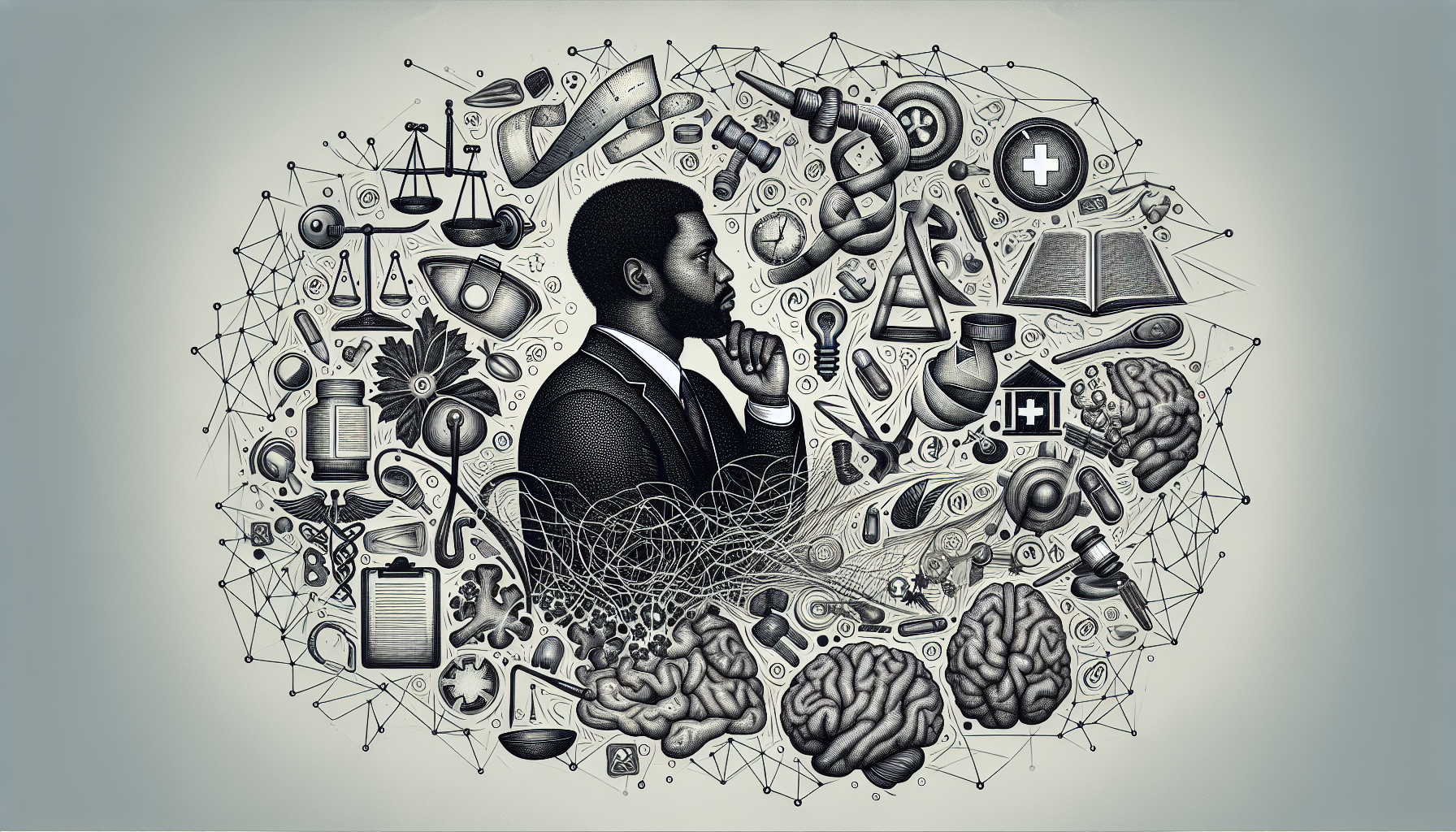
Unveiling the Power of ChatGPT in Custody Appeals
ChatGPT is rapidly transforming how legal professionals approach cases, including the complex realm of custody appeals.
Purpose and Scope
The purpose of this section is to explore how ChatGPT can be utilized in preparing custody appeals. By leveraging this AI technology, legal professionals can enhance their research, drafting, and overall strategy to improve outcomes for their clients.
Brief Overview of ChatGPT and its Legal Applications
ChatGPT, an advanced language model developed by OpenAI, offers powerful applications within the legal sector. It can assist in generating drafts, legal research, and providing instant insights into case law and statutory interpretations. Its ability to process and generate human-like text makes it an invaluable tool in legal practice.
The Cornerstones of a Compelling Custody Appeal
Building a strong custody appeal starts with a deep understanding of legal precedents and effective argumentation strategies.
Understanding Legal Precedents
- Review past custody cases similar to your client’s situation.
- Identify key factors courts considered in making their decisions.
- Compare and contrast with the current case to identify strengths and weaknesses.
Legal precedents serve as a guideline for constructing an appeal, offering a framework for what arguments hold merit in court.
Key Elements of a Persuasive Argument
- Fact Pattern: Clearly outline the facts of the case.
- Legal Grounds: Identify the legal basis for your appeal.
- Compelling Evidence: Present strong, incontrovertible evidence.
- Emotional Resonance: Craft arguments that resonate emotionally without undermining legal arguments.
Combining these elements can create a compelling narrative that persuades the court to rule favorably.
Supercharging Research: Using ChatGPT for Legal Insights
With a foundation in place, focus turns to researching and gathering the necessary legal insights to bolster your appeal.
Crafting Effective Research Prompts
To make the most out of ChatGPT, use specific and clear prompts. Examples include:
- “Summarize key custody rulings in New York State over the past decade.”
- “Explain the importance of the best interest of the child standard in custody cases.”
Effective prompting ensures high-quality, relevant responses that aid in your research efforts.
Leveraging ChatGPT for Statutory Interpretation and Case Law Summaries
- Statutory Interpretation: Ask ChatGPT to clarify legal statutes that may be applicable.
Example: “Interpret Section 302 of the Family Court Act regarding relocation of custodial parents.”
- Case Law Summaries: Request summarized case law to identify relevant judicial reasoning.
Example: “Summarize the reasoning in Smith v. Jones, a landmark custody case.”
These capabilities streamline the research process, providing concise and useful information.
Also read:
Drafting Masterpieces: Writing Custody Appeals with AI Assistance
Drafting custody appeals benefits enormously from the assistance of AI, particularly when structuring arguments and refining drafts.
Structuring Arguments for Maximum Impact
- Introduction: State the purpose of the appeal and outline key arguments.
- Body: Detailed presentation of arguments and supporting evidence.
- Conclusion: Summarize main points and reiterate the request for relief.
A well-structured document ensures clarity and reinforces the strength of the presented arguments.
Using Prompt Engineering to Refine Drafts
- Request enhancements:
Example: “Improve the flow and coherence of this argument on parental fitness.”
- Generate alternatives:
Example: “Provide alternative ways to argue for joint custody arrangement benefits.”
- Proofread for errors:
Example: “Check this draft for grammatical and typographical errors.”
Prompt engineering allows for iterative refinement, helping to create polished and persuasive documents.
Also read:
Interrogating Without Interrogation: Simulated Q&A for Mock Trials
Once a draft is in hand, preparation for the courtroom takes center stage. Simulated Q&A sessions with ChatGPT can be invaluable.
Setting Up Role-Playing Scenarios with ChatGPT
- Define roles clearly:
Example: “Act as opposing counsel questioning the validity of my client’s relocation request.”
- Simulate courtroom environment:
Example: “Simulate a mock trial where I defend my client’s parental fitness.”
These mock trials help in preparing for real courtroom dynamics.
Anticipating Counterarguments and Preparing Rebuttals
- Identify potential weaknesses in your case.
- Prepare rebuttals to anticipated counterarguments.
Example: “What are common counterarguments to joint custody, and how can I rebut them?”
This preparation ensures readiness for nearly any line of questioning in actual trial scenarios.
Also read:
Streamlining Document Review: Maximizing Efficiency with ChatGPT
The document review process is a cornerstone of efficiency and accuracy, and ChatGPT offers remarkable assistance in speeding up this phase.
Speeding Up the Review Process
Using ChatGPT, entire documents can be reviewed quickly. Provide large chunks of text for it to review, ensuring no inconsistencies or errors are present.
Ensuring Accuracy and Consistency
ChatGPT can confirm:
- Alignment with statutes.
- Consistency with case law.
- Absence of contradictions within the document.
Also read:
Ethical Implications and Best Practices for Paralegals
As with any powerful tool, ethical considerations are paramount.
Staying Within Ethical Boundaries
- Ensure that AI outputs complement rather than replace human judgment.
- Verify and cross-reference AI-generated content with reliable legal resources.
Ensuring Confidentiality and Data Security
- Use encrypted communication channels for AI queries involving sensitive data.
- Regularly update security protocols to safeguard client data.
Ethical guidelines must be adhered to in order to maintain the integrity of the legal profession.
Also read:
Looking Ahead: The Future of AI in Legal Work
Emerging Trends
AI will continue to evolve, offering even more sophisticated tools for legal work, such as predictive analytics and advanced case strategy recommendations.
Continuous Learning and Adaptation
Legal professionals must stay apprised of technological advancements and continuously adjust their strategies to incorporate these innovative tools.
In summary, embracing AI tools like ChatGPT can revolutionize the practice of law, particularly in the nuanced field of custody appeals, ensuring more efficient and effective client representation.


